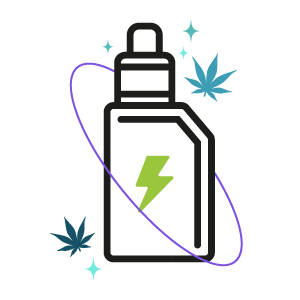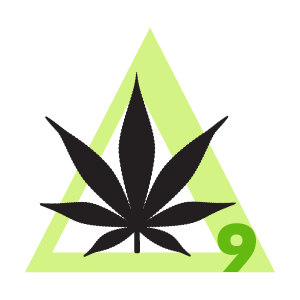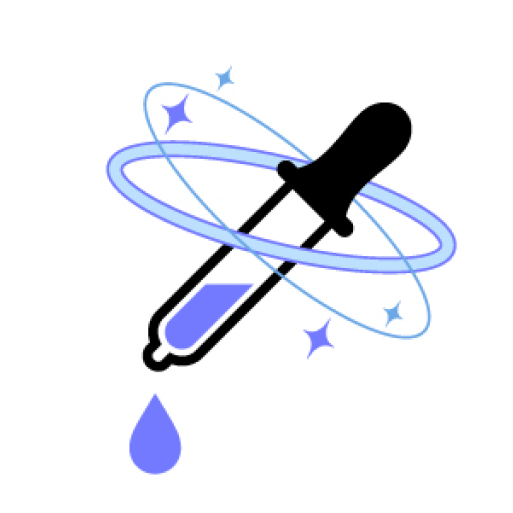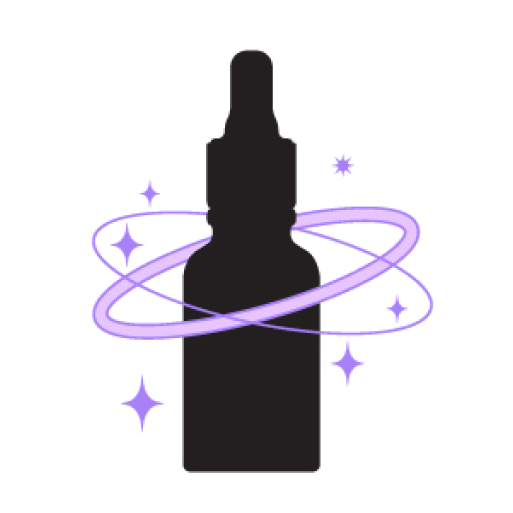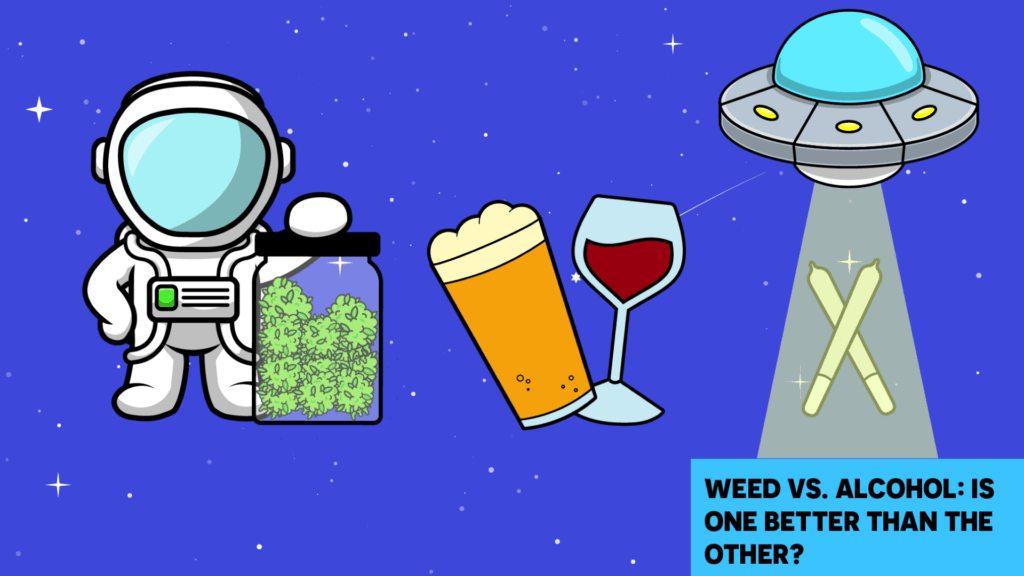Does Delta 9 Show Up on a Drug Test?
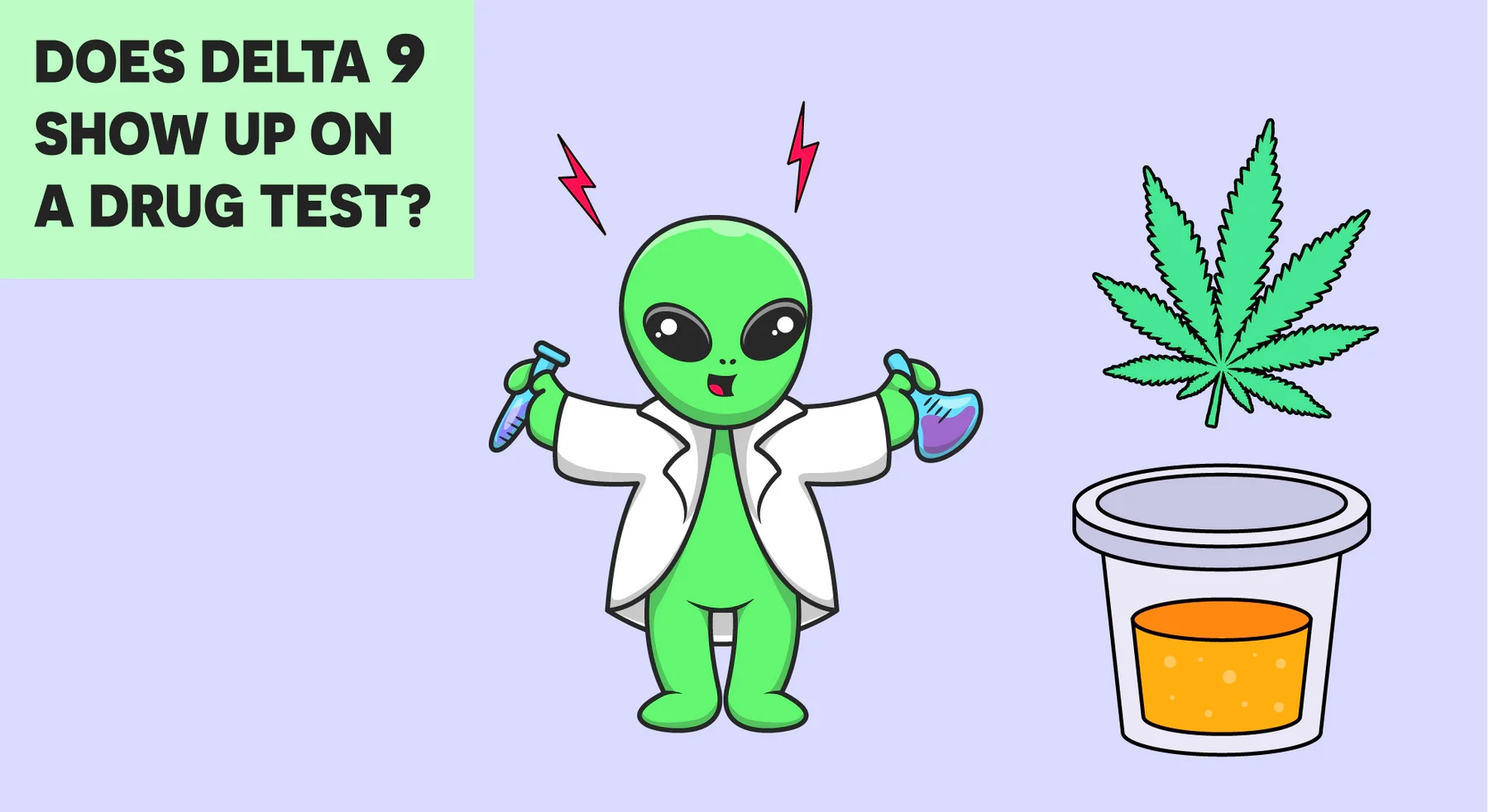
Are you starting a new job, planning to travel, or participating in a sports event?
Are you worried about having to undergo Delta 9 drug tests for any of these situations? Concerned about whether the drug test will detect anything? This article will help you address all your concerns thoroughly.
Key Takeaways
- Yes, Delta 9 (commonly just referred to as THC) does show up on drug tests.
- Drug tests detect THC metabolites in Delta 9.
- More than five factors influence your detection time.
- Delta 9 is a subject of significant interest both recreationally and medically.
What Is Delta 9 THC?
Delta 9 THC (main psychoactive compound) is one of the 100+ cannabinoids found in cannabis that produces an intoxicating effect that is generally known as the high associated with marijuana use. That’s why it is said to be a controlled substance.
It interacts with the body’s endocannabinoid system, affecting brain areas that influence concentration, movement, pleasure, memory, thinking, coordination, and sensory and time perception. It is responsible for most of the therapeutic benefits, including;
- Feelings of happiness, relaxation, and sometimes, perceptual changes.
- Increasing appetite in patients suffering from extreme weight loss.
- Enhancing creativity or, sometimes, disorganized thinking.
- Managing chronic pain and neuropathic pain.
- Reducing nausea and vomiting associated with chemotherapy treatments.
- Treating neurological conditions like multiple sclerosis.
- In lower doses, THC can reduce anxiety.
- Help people with insomnia or sleep disturbances.
But the main question is, how long does Delta 9 stay in your system?While you might be looking for a specific timeframe, like 3 or 5 days, it’s not set in stone. Your detection time depends on several factors in your body, which solely depend on how your body is.
Main Factors That Affect Detection Time
The detection time of Delta in the body—how long it remains detectable after consumption—can differ a lot from person to person. Knowing these differences is important for predicting how long THC might stay in your body.
Some of the factors that can influence the detection period in drug tests are;
- How often you use Delta 9 – THC tends to leave the body faster for those who don’t use Cannabis often. Regular users may have THC stored in their fat cells, leading to longer detection times.
- Amount consumed – Higher doses mean more THC in your body, and it takes longer to break down.
- Your body fat – THC is stored in fat cells and slowly released over time, which is why individuals with more body fat may retain THC longer.
- Your metabolism – Faster metabolism can help process THC more quickly.
- Your overall health – General health and liver function affect how efficiently THC gets eliminated.
- Hydration and Diet – Drinking lots of water can dilute THC in your urine, affecting test results. Certain foods might speed up or slow down THC processing.
- Type of Delta 9 product – Stronger products, like Delta 9 edibles, concentrates, or high-THC flower, can lead to more THC in your system.
- Mode of Consumption – Smoking or vaping cannabis leads to quicker detection, while edibles take longer to process.
- Your physic – Physical activity might speed up THC breakdown, especially during fat-burning activities. But working out right before a test could make THC more detectable.
- Sensitivity of the test – Some tests are more sensitive, so they can pick up even small amounts of THC, extending the time it’s detectable.
Everyone’s body is unique, from its shape to its metabolism, tolerance, and lifestyle. What works for one person may not work for another. So, when it comes to THC detection, there’s no one-size-fits-all answer. But there are certainly some ways THC can be eliminated from your body.
Why Does Delta 9 Show Up on a Drug Test?
When you consume THC, the liver breaks it down into several chemicals. During this process, leftover metabolites remain in your bloodstream, urine, saliva, sweat, hair, and even lungs, gradually being eliminated over time. Drug tests are designed in such a way that detects these metabolites, proving that you have used a particular substance. However, they don’t differentiate between light and heavy users.
The primary metabolite that drug tests generally look for is THC-COOH (11-nor-9-carboxy-Δ⁹-tetrahydrocannabinol). Because THC is fat-soluble, it remains in your body’s fat cells longer than water-soluble compounds. The metabolite THC-COOH can persist in your system for days or even weeks after consumption, especially if you are a frequent or heavy user.
Types Of Drug Tests That Can Detect Delta 9
Different drug tests are available to detect Delta 9. Each test has its unique detection window and sensitivity, making some more appropriate than others for specific contexts like workplace screening, medical assessments, or law enforcement purposes.
Here’s a breakdown of the common types of Delta 9 drug tests;
Urinalysis
It is the most common form of drug test. According to the Mayo Clinic Study, after a dose of THC, the metabolite generally appears in urine within 60 minutes or up to 4 hours. Urine tests could deliver differing results depending on the dosage and frequency of use. They usually have a shorter detection period than other drug tests.
Plus, studies involving humans indicate that around 80% – 90% of the Delta 9 dose is excreted within 5 days, with around 20% excreted in urine. Nevertheless, these tests can be easily manipulated by consuming large quantities of water, which dilutes the urine and makes it more challenging for the test to detect metabolites.
Blood Tests
Unlike other drug tests that can detect THC metabolites for days or weeks, blood tests have a relatively short detection period. This is because THC is quickly metabolized and cleared from the bloodstream.
Once THC enters the bloodstream, it rapidly gets distributed to tissues and organs. The liver metabolizes THC into various metabolites, which are then excreted. This quick metabolism is why the detection window in the blood is relatively short.
Saliva Tests
Saliva drug tests, also known as mouth swabs or oral fluid tests, detect traces of delta 9 or other substances in saliva. The procedure involves using a swab stick to collect a sample from the inside of the cheek or under the tongue.
Saliva tests have a short detection window compared to other types of tests. They are typically used to detect recent drug use, usually within the past 1-3 days.
Hair Follicle & Hair Drug Tests
Hair follicle tests can catch drug use over a longer period than regular hair tests. However, labs rarely use them due to their high cost and complexity.
The process is similar to hair drug tests but involves a more detailed analysis. The US federal government currently does not support hair drug testing, although this policy may change in the future.
Hair drug tests are common. They screen for delta 9 use over a longer period. A hair sample is trimmed close to the scalp for these tests and sent to a laboratory.
The testing process involves two main steps;Enzyme-Linked Immunosorbent Assay (ELISA): This initial screening test detects the presence of drugs in the hair sample.
Gas Chromatography–Mass Spectrometry (GC-MS): This confirmatory test identifies and quantifies specific drugs in the sample if the initial test is positive. Because hair grows slowly, these tests can detect drug use over approximately the past 90 days based on the length of the sample tested.
This confirmatory test identifies and quantifies specific drugs in the sample if the initial test is positive. Because hair grows slowly, these tests can detect drug use over approximately the past 90 days based on the length of the sample tested.
| User type—After; | Urine Tests | Blood Tests | Saliva Tests | Hair Follicle Tests |
|---|---|---|---|---|
| Single Use | 3 days | THC drops below 5 mL within 3 – 4 hours post dose | 1 to 2 days | Cannot detect in the previous 7-14 days |
| Moderate Use | 5 days | 36 hours | 3 days | depends on hair length (generally up to 90 days) |
| Heavy Use | 10 days | up to 7 days or more | up to 25 days or more | depends on hair length (generally up to 90 days) |
| Chronic Heavy Use | up to 30 days or more | up to 30 days or more | up to 29 days or more | generally up to 90 days |
*These are approximate detection times for the drug or metabolites. The actual detection time depends on dose, frequency of use, and individual metabolism.
Can You Pass a Drug Test as a Delta 9 User?
You can increase your chances of passing a drug test by keeping a few things in mind beforehand. These tips require patience and some time to follow.
-
- The best way to pass a drug test as a Delta 9 user is to stop using cannabis for a period before the test.
- Knowing how long THC can be detected in your system based on the testing method is important. This can help you estimate the necessary time you might need to abstain from cannabis to pass the test.
- There are detox products that claim to cleanse THC from your system, but their effectiveness varies.
- Do exercise, and eat healthy. Avoid intense workouts close to the test, as they can release THC from fat stores.
- Consuming a lot of water before a urine test can dilute the urine, but labs check for this by testing creatinine levels and urine color. Over-dilution can lead to a retest.
If you use cannabis medically, consider discussing it with your employer or the testing agency.
Legality of Delta 9
Although Delta 9 products are federally legal under the 2018 Farm Bill, some states have laws regarding the sale, purchase, and use. Before buying any THC products, including Delta 9 gummies or disposables, you should check your state’s laws regarding THC.
The 2018 Farm Bill legalized hemp-derived products that contain less than 0.3% Delta 9 on a dry weight basis. This means that, at a federal level, such products are considered legal. By understanding these regulations, you can make informed decisions about purchasing and using Delta 9 products.

